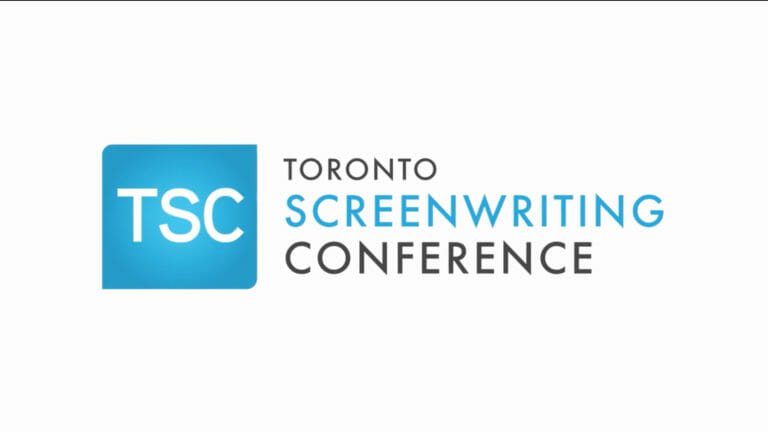By Jeff Legge · May 4, 2016

Last weekend, thousands of writers – from amateur to professional – converged on the Metro Toronto Convention Centre for the annual Toronto Screenwriting Conference (TSC). And who can blame them given the con’s penchant for attracting the best in the biz, from David Goyer and Michael Arndt, to long-time legends like David Webb Peoples? 2016 was no slouch either, with special guests Charles Randolph (The Big Short) and Glen Mazzara (The Walking Dead) rounding out an impressive roster in a weekend fit-to-burst with screenwriting wisdom.
Any good con breaks down into two equally important halves: the panels, and the mingling. For the TSC, the latter has never been a problem. You’re unlikely to find a more substantial and varied collection of screenwriters gathered at any one place at any one time, anywhere in the world. From students and assistants, to working writers with meaty credits to their names, the conference has always been a great networking opportunity for aspiring screenwriters, which is a point not to be taken lightly especially in a vocation that calls for long stretches of sitting alone in a room amidst hearty doses of cosmic dread.
Of course, meeting people is only half the battle (with “not being terrible” of arguably equal importance). As in years past, the true value of the Toronto Screenwriting Conference lies in the variety of meaty panels and sessions that make up the brunt of the two-day event. As with any craft, good screenwriting requires mentorship through the passing of wisdom, techniques, tricks of the trade, and (in some cases) the rules of basic grammar. It’s here that the TSC delivers in spades as experts take to the stage to discuss all-things-narrative, from theme, structure, and characterization, to brainstorming, development, and (of particular interest) selling your stuff!
Day one began on a brooding and morally ambiguous note with Glen Mazzara delivering a fantastic talk on the history and continued relevancy of the antihero archetype. From ancient myth to The Sopranos, Mazarra’s panel deconstructed the bad guy with a heart of gold, and investigated the often-fine line separating an antihero from a more antagonistic force. The day was full of similarly fantastic stuff, including a writing room simulation led by Emily Andras (resulting in a crazy good spec episode for Buffy the Vampire Slayer), and Jen Grisanti’s informative and aptly titled panel, “Writing A TV Pilot That Sells”, which dove into the elusive link between quality and that much dreaded buzzword: marketability. As you might expect, there wasn’t a seat to be had.
Day two featured an equally stimulating collection of talks, including an interview with Nicole Clemens, the executive VP of development for FX. For fans of The Strain, The Americans, and Fargo (a.k.a, seemingly everyone), the discussion presented unique insight into the screenwriting process from the other side of the fence. Also on Sunday was “Non-linear Storytelling: Developing Story in Games”, which also happens to be this humble correspondent’s personal pick for best panel of the show. During the ninety-minute session, Kevin Shortt opened the Pandora’s box of crafting a narrative experience for interactive media. That’s right – video games need writers too, and as games continue to grow in complexity and storytelling prowess, many young writers will find that their most tangible opportunities come from this space. The catch? It’s a whole different ballpark when it comes to pitching and developing stories, not to mention the process of writing itself. Just think – how do one account for the notions of interactivity and player choice in your writing? How do you format a branching path, or account for a scene some gamers may not even experience? Kevin Shortt used his recent experience on Far Cry Primal to shed light on these and other challenges.
As is to be expected, the value of attending a conference depends on just how invested you are in its subject. For most of you, I imagine that investment level is pretty high (you’re reading The Script Lab, after all), so the conference is easy to recommend. The Toronto Screenwriting Conference is, above all, an educational opportunity – it’s a dense weekend geared towards professional development for industry folk (and those hopefuls looking to get their foot in the door), and while it carries a hefty price tag, I wouldn’t hesitate to recommend the experience to any of my screenwriter friends. It’s easy to forget amidst all the solitary confinement that there’s a social element to this business. In other words, it’s important to get out there and meet people, and what better opportunity than an event like this, wherein you might learn a thing or two (or ten) in the process?